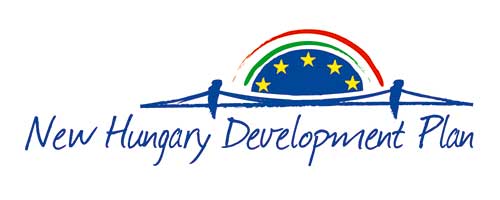
Project identification number: RRF-2.3.1-21-2022-00003
Project title: National Cardiovascular Laboratory
Project purpose briefly: Development of new preventive, diagnostic and therapeutic procedures
Project data:
Consortium leader: Semmelweis University
Consortium members:
University of Szeged
3DHISTECH Ltd.
Neumann Medical Ltd.
PHARMAHUNGARY 2000 Ltd.
Grant identification number: RRF-2.3.1-21-2022-00003
Total project cost:5 670 176 720.-Ft
Amount of support: 96,12%
Planned project duration: March 1, 2022 – February 28, 2026
Consortium members and the allocation of support:
| Consortium members | Grant awarded (Ft) | Önerő (Ft) | Total (Ft) |
| Semmelweis University | 4 950 000 000 Ft | 0 Ft | 4 950 000 000 Ft |
| Neumann Medical Ltd. | 150 000 000 Ft | 37 500 000 Ft | 187 500 000 Ft |
| PharmaHungary 2000 Ltd. | 149 999 999 Ft | 32 676 721 Ft | 182 676 720 Ft |
| University of Szeged | 50 000 000 Ft | 0 Ft | 50 000 000 Ft |
| 3DHISTECH Ltd. | 150 000 000 Ft | 150 000 000 Ft | 300 000 000 Ft |
Short description of project: The National Cardiovascular Laboratory undertakes revolutionary research into the pathophysiological mechanisms involved in the development of aging-related cardiovascular diseases, with the aim of developing and implementing new, innovative preventive, diagnostic and therapeutic procedures based on the results of the research.
Pillars of professional implementation:
The national lab program is based on the following main translational research projects, product and service development professional pillars:
Clinical-epidemiological programs: During the program, we will test the implementation possibilities of the new procedures using an evidence-based indicator system in THE a cohort study (Semmelweis Study) carried out within Semmelweis University. The tests of the cardiovascular research program of the Program for Healthy Aging, which will be developed with the help of the program, are embedded in this study. The program will conduct research and development of innovative screening, diagnostic and therapeutic methods, services and products aimed at reducing the incidence and mortality of ischemic heart disease and heart failure. As part of its clinical-epidemiological programs, the National Cardiovascular Laboratory maps the potential mid- and long-term cardiovascular effects of the COVID-19 infection with multimodal clinical and detailed follow-up. We plan to close the BUDAPeST Upgrade CRT international clinical trial, based on the results of which new professional guidelines will be developed.
2. Innovative drug-biotechnological developments: The National Cardiovascular Laboratory will detect new drug attack points and reposition existing drugs within the framework of its innovative drug-biotechnological development program. The analysis of the gene and protein expression pattern of the patient’s heart muscle tissue will be done with the development and application of integrative, network theory and artificial intelligence based systems, as a result of which new drug targets will be identified and drug repositioning developments will be implemented. Important elements of the program: development of in vitro cardiovascular platforms, further development of microRNA-based pharmacotherapy solutions, cardio-oncology studies, marketing of software supporting RNA-based molecular bioinformatics drug development and drug safety developments.
3. Development of innovative medical and diagnostic devices and databases: As part of the National Cardiovascular Laboratory’s programs aimed at the development of innovative medical and diagnostic devices and databases, the identification and validation of extracellular vesicle-based diagnostic and therapeutic effect markers and measurement methods will take place. Further development of software used for “big data” network analysis and supporting structured retrieval is also an element of the program. A laboratory test suitable for determining biological age and the associated software will also be introduced.
Expected results and their impact:
The research results of the National Cardiovascular Laboratory will make a decisive contribution to the development of evidence-based cardiovascular health promotion and disease prevention programs, helping to achieve the goal that the country’s population can live a healthy life even in old age. The interdisciplinary and translational nature of the program guarantees that it will successfully implement the development of evidence-based innovative disease prevention, screening, diagnostic and therapeutic procedures suitable for reducing the incidence and mortality of cardiovascular diseases. The results of the program contribute to the international market of innovative products and services with high economic added value, thereby helping the development of the domestic pharmaceutical biotechnology industry.

KFI_16-2016-0089
Developing a multifocal digital whole-slide microscope for pathology
MR_12-1-2012-0216
Automated, in-situ diagnostics in molecular-oncology
KMOP-1.1.4-11/A-2011-0138
Developing a new, complex digital fluorescence microscope
GVOP-3.3.3-05/3-2006-04-0209/3.1
Supporting Corporate Innovation, Developing a new type, combined sample preparator and microscope
Central Hungarian Operational Programme -1.1.5-08.2009-0002
Increasing the R&D capacity
Central Hungarian Operational Programme -1.1.1.-08/1-2008-0035
Creating the prototype of an automated staining, coverslipping, scanning and image processing machine
Central Hungarian Operational Programme -1.1.4-08/1-2008-0020
The use of TMA 2.0 in the pathological workflow

